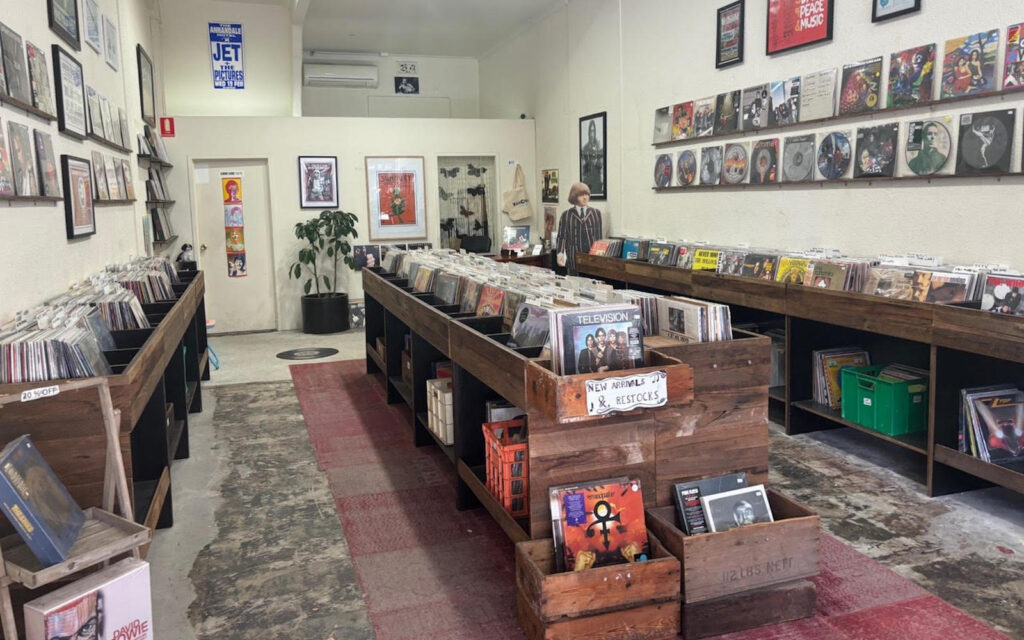“We certainly were going through a James Brown phase when we started that record,” he says. “We were rediscovering Black Sabbath, Led Zeppelin, listening to all these records, from soul records to rock records and prog-rock records; everything that was happening in that area of the ‘70s.”
Mutemath’s hometown of New Orleans has certainly been an illustrious locale for musical innovation, however despite the city’s noteworthy musical history Meany admits New Orleans music hasn’t always been a favoured passion. “I kind of resented it over the years; I never really let myself go there. It was Mum and Dad’s music and I was far more interested with what I was listening to on the radio. Paula Abdul or whatever I was into, you know, typical teenager.”
Mutemath’s music doesn’t exactly resemble New Orleans’ celebrated music traditions but the significance of the city’s musical heritage has gradually made an impact upon the band. “As we began to create, especially for Odd Soul, those bits of our creative DNA were coming out and we were pushing songs to go there. The goal was always to try to get the band to travel and get out of here and go see the world. After traveling the world and going back and listening to Meters records and old Dr John records – stuff that I wrote off in passing – I began to hear it with this new appreciation and this hunger for wanting to take it apart,” says Meany.
Over the past few months Mutemath have been working on material for the follow up to 2011’s Odd Soul. Meany explains that the band are sticking with their established songwriting formula, which involves elaborating on the ideas of drummer Darren King. “Most Mutemath songs start with Darren making some instrumental electronic-y composition. He brings it to me, I usually love it, and I sing on it. Once we’ve got that, the band gets together to bang it out and try to see if it can go on any rabbit trails or go any further, or maybe we scale it back.”
Although King is responsible for planting the seed of the song, it’s essential for each member to add their own flavour and inject a fleshy live feel. Meany voices appreciation for King’s openness to have his ideas modified. “Darren’s really got a great mentality when it comes to that because he really is cool with us deconstructing things and trying things. I think there might be a few ideas that he has a very specific ‘no, let’s not go here,’ and he’s usually always right when he has those type of things.”
Clinging tightly to individual ideas will inevitably cause conflict in any collaborative venture. Meany alludes to some tough learning experiences the band endured before establishing healthy inter-band consensus. “Over the years we’ve learned to not be too precious with ideas and trust the guys you’re in the band with,” he says. “It was the roughest when we made the second record. Making it through the second record, I think we grew up exponentially.”
Meany agrees that relinquishing totalitarian guard over one’s personal input, and actually paying attention to what a song needs, is necessary for effective collaboration. “To realise that if Darren asks me to try to re-sing the vocal it’s not because I just told him that I didn’t like his beat; it really is because he thinks I can sing it better and he wants the song to be better. You don’t have to make every criticism personal. It’s probably a skill set that has to be developed at some point where you’re able to zoom out and see a big picture. There’s something bigger at play and you don’t want to get too zoomed in to the ego-driven stuff.”
While the band have a go-to method for song construction this is by no means a suggestion that the songs develop in a secure and predictable manner. Meany admits to the pressures faced when approaching a new record. “There’s no set formula to it. I wish it was as easy as just following the steps, ‘this is what you do to make a good record,’ but it’s always different, it’s always evolving. We love the process so wherever it goes we’ll enjoy it; hopefully our fans will too.”
If making records simply involved following specific directions the music itself wouldn’t be nearly as engaging. Meany suggests that an element of uncertainty is also important when it comes to the listening experience. “There has to be the threat of ‘this might suck’. You have to be worried, you have to be concerned. I think the concern will create a greater high when do find something that the band does, new, that you actually really love.”
Meany promises the fruits of their recent labours will be showcased on stage when they arrive in Australia this month and the crowd reactions could have a determining influence on what makes the next record. “This is going to be the first time that we’ve road tested new songs in five years. I think you guys are going to have the power once we get over there.”
BY AUGUSTUS WELBY







